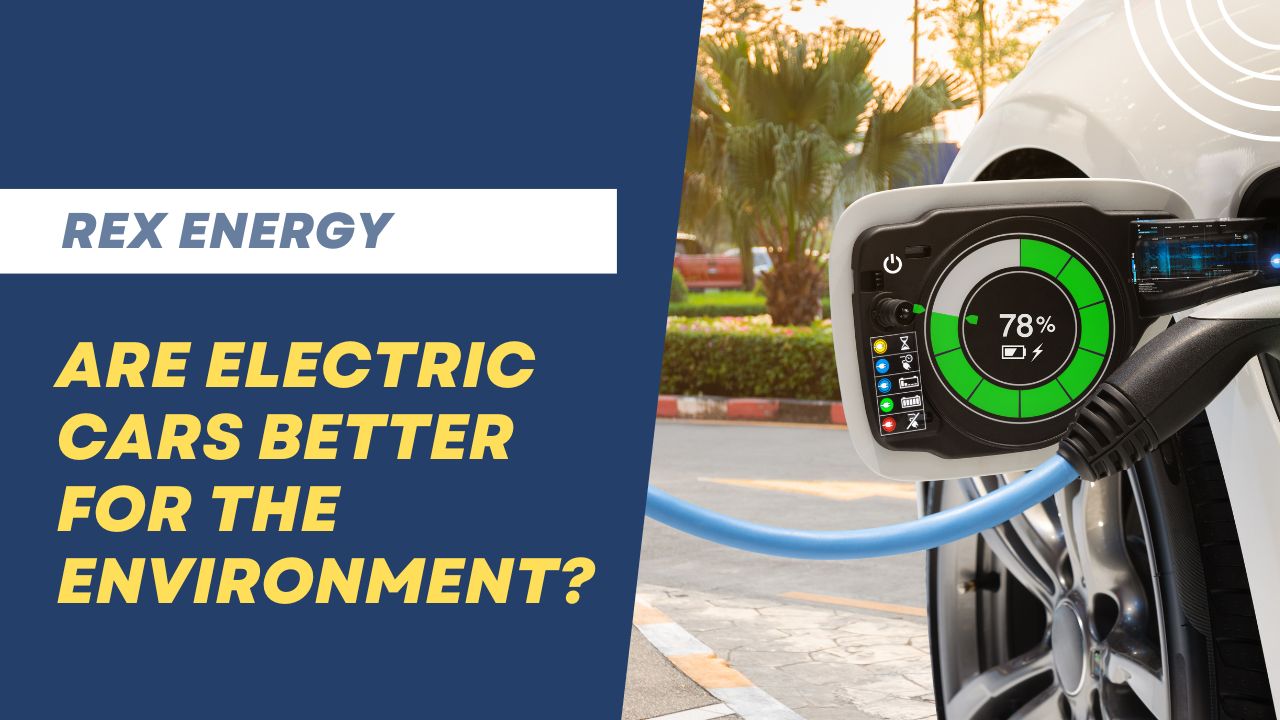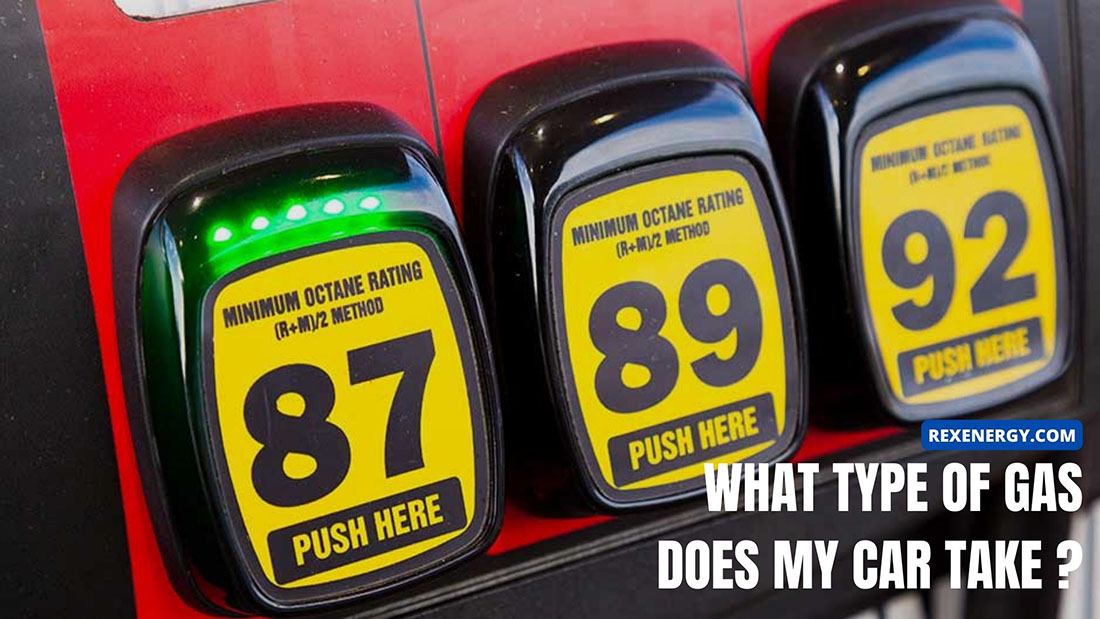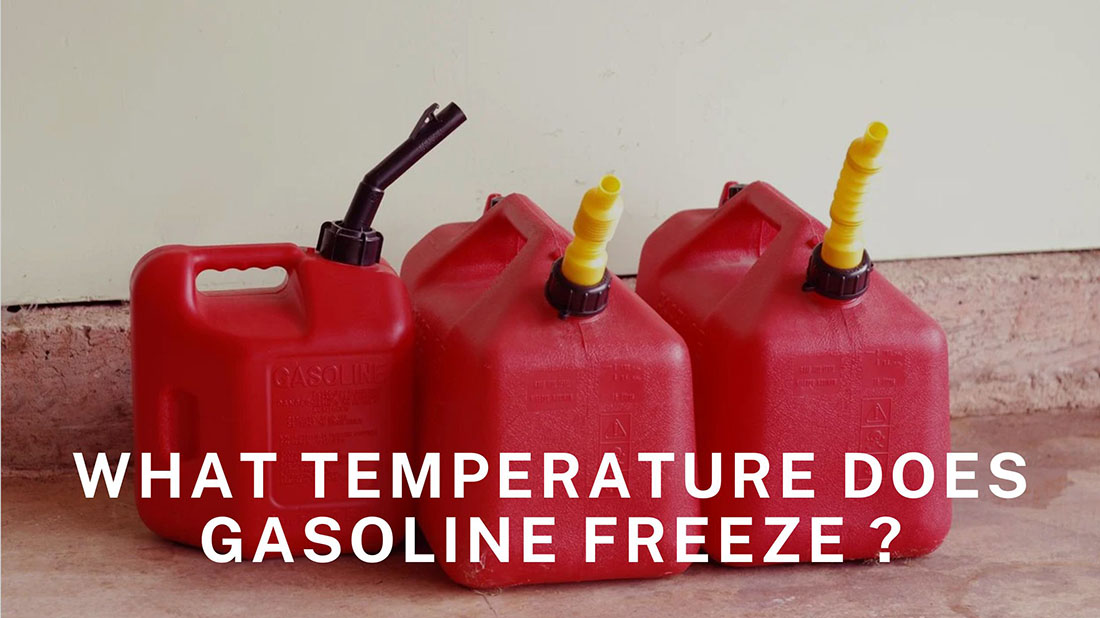Tailpipe emissions can be greatly cut down by reducing the negative impact of transportation. Nearly 30% of greenhouse gas emissions in the US today are related to transportation.
That’s why we can find more and more electric cars on the road nowadays. However, what are the electric cars’ environmental benefits?
This article addresses some of the most often-asked queries about electric cars and their environmental effects. Keep reading this if you are concerned about pollution and electric vehicles.
Electric Car Production Affection To The Environment
Electric cars typically generate more pollution during manufacturing than conventional cars due to the production of lithium-ion batteries, a key component of electric vehicles. The energy used to make an electric car accounts for more than a third of its total lifetime CO2 emissions.
However, even considering the battery production process, electric vehicles are still a greener choice because they can reduce the carbon footprint generated over the car’s life. This limitation is gradually getting better as technology develops.
According to a study by the European Energy Agency, the carbon emissions of electric vehicles are 17 to 30% lower than those of petrol or diesel vehicles, including when the battery is created. The use of low-carbon electricity also significantly reduces emissions from power generation.
The battery reuse and recycling market are also expanding. Reusing electric vehicle batteries in new technologies such as electricity storage is at the heart of research on the use of used batteries.
One day, we may all have batteries in our homes that we can use to store energy. Such capabilities will ease the overall environmental impact of battery manufacturing in general and automotive batteries in particular.
Why Are Electric Cars Better For The Environment?
One of the biggest benefits is that they contribute to improving air quality in all areas because they can significantly cushion our environment against air pollution.
No Exhaust Emissions
Exhaust pipes are not necessary for all-electric vehicles since they emit no gas. Traditional vehicles use diesel or gasoline for power but with the payoff of dangerously large carbon emissions.
ICE vehicles emit carbon dioxide any time their engines run, averaging between 5 and 6 tons of CO2 annually.
Lithium-ion batteries are the most common type of battery used in electric vehicles. This battery can be discharged and recharged many times without polluting the air. The carbon footprint of making EV batteries is already 2 to 3 times less than it was two years ago, and it’s getting smaller and smaller.
EV automakers also set requirements for suppliers to use only renewable sources, including solar and wind, throughout their manufacturing processes. These clean sources can provide the energy needed to produce electric car batteries without generating harmful pollutants.
Use Green Raw Materials
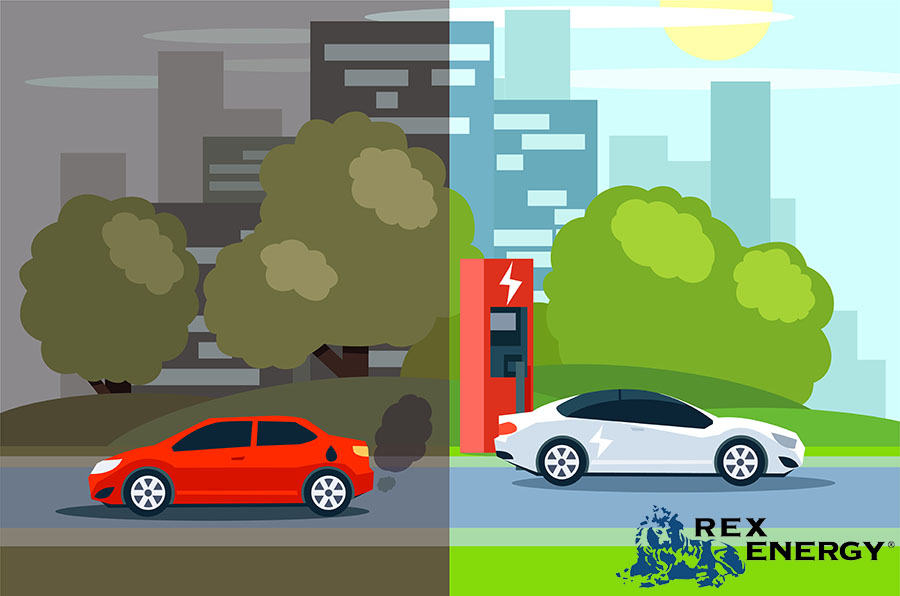
The benefits of lighter electric vehicles are greater range and lower carbon emissions, but using conventional materials makes this difficult.
The structure of a car today is hardly made entirely of recycled materials, although many manufacturers use them for many small components. Eco-friendly raw materials are being used and improved by electric vehicle manufacturers to create lighter, more efficient vehicles while still being environmentally friendly.
No Harmful Liquid
Electric vehicles do not require the use or disposal of fossil-based consumables such as motor oil. As a result, many automotive fluids and lubricants that can harm the environment in ICE vehicles are not an issue for electric cars.
Oils and other automotive fluids used in internal combustion engines are insoluble in water. Engine oil contains dangerous compounds, so if it’s not handled properly, it can be hazardous to people, wildlife, and the marine environment. Engine oil can build up and linger in the soil for years because it’s heavy, sticky, and comes with many harmful chemicals.
Electric vehicles typically don’t use antifreeze or brake fluids containing heavy metals that can affect aquatic organisms, in addition to not using engine oil. Battery coolant can be used in electric vehicles, but it is included in a closed system and hardly needs to be changed.
Less Risk To The Environment And Human Being
Our dependence on fossil fuels takes a toll on our safety and health. A damaged pipeline on the seabed or an oil refinery fire both cause significant environmental costs along with the aftermath they bring to us humans.
Although promoted as a safer and cleaner alternative to coal and oil, natural gas is not without risks. Over the past few decades, accidents involving natural gas pipelines have resulted in thousands of injuries and hundreds of deaths.
Fossil fuel output could be reduced in the vehicle industry to avert many of these risks and disasters. As a result, the proliferation of electric vehicles could have a drastic impact on the environment and human health in many years to come.
Some Disadvantages Of E-Cars
Indirect Effects
Electric vehicles do not emit exhaust fumes, but their batteries can still release harmful gasses, no doubt. Much of the electricity needed to power electric vehicles is produced from non-renewable energy sources, which can be harmful to the environment and human health.
Long Charging Time
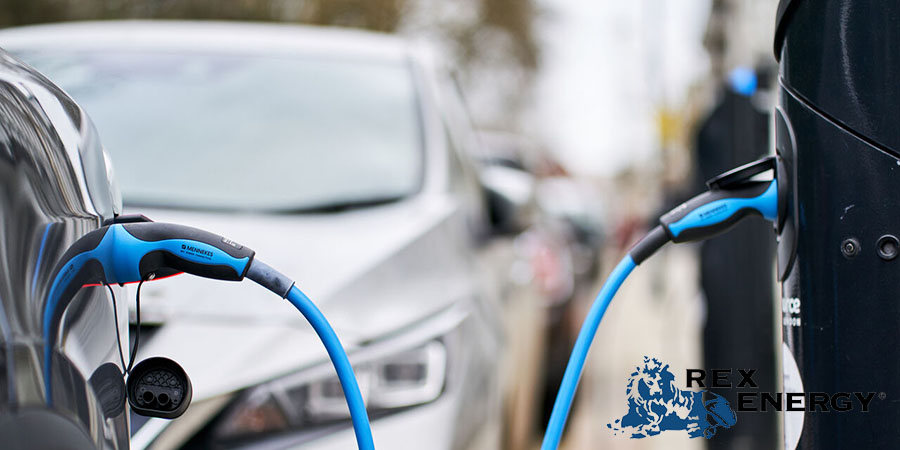
Depending on battery capacity, it can take up to 12 hours to fully charge an electric car, so even though you’re saving on gas or diesel, your electric bill will go up. However, this amount will be much lower than the price of regular fuel.
Conclusion
Hope that you have your answer for the question why electric cars are better. The world’s journey away from dirty fossil fuels and towards cleaner renewable energy sources is made possible by electric cars.
It is still unclear how long that will last and what the actual environmental impact will be, but your use of an electric car is already a good sign for the environment and your health.
See more:

